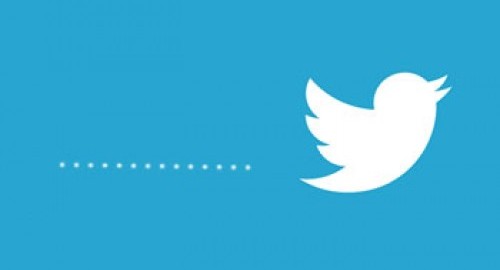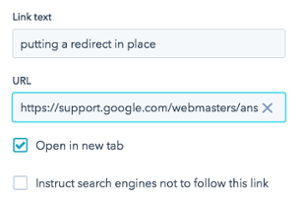
Is Twitter dead? Probably not.
Twitter is giving full access of its Tweets to Google.
Twitter is making use of this traffic without logging into the platform.
If you are a blogger, marketer or in business, Twitter should be a part of your overall social media campaign. It is vital to tweet to increase brand awareness, relationship building, and it’s a powerful tool for change.
Check out 10 essential rules for effective Twitter marketing.
Though Twitter offers its analysis to everyone, many aren’t using it to full potential. Beyond tweeting, here are some basic elements you can discover about a Twitter account and any hidden messages.
1. Basic To Twitter Analytic Dashboard
In mid-2014, Twitter has opened up its analytic platform for all users. Everyone with a Twitter handle can have full access to the gold mine.
Access your twitter analytic here.

There is a lot of information you can get from the dashboard, such as impressions, engagement rate, link clicks, etc. But, before that, you need to understand the definition of each metric to make your data meaningful.
If your Twitter campaign is to increase impressions, you have to monitor that particular metric and find the best way to improve impressions. Keep an eye on each metric and compare the data with previous months. You will know if you are doing things right because you’ll see a steady increase.
Now, take a closer look at the details of each tweet, you will find even more hidden messages.
Here’s how the details of a specific tweet look:

If your business is focusing on this link, do A/B testing on it. Monitor the key metrics by writing different headlines, include a different hashtag or a different picture and find out the best way to maximize the tweet’s reach.
Analyzing these data statistics is the first step to evaluate your Tweet performance.
During March 2015, Twitter launched a new account homepage. This page saves you a lot of time by providing you with a monthly summary of your Twitter activity.

This dashboard also makes thing easier for businesses to advertise on Twitter. You can now make a quick decision on whether a tweet is worth promoting without spending time going through the minute details.
If Twitter analytic is a piece of information you’ve overlooked, let’s try it out today. Focus on a metric and improve from there. It can make a good impact over time.
Updated:
On May 27, 2015, Twitter upgraded its analytic with Audience Insights. This feature has a more detailed breakdown of your followers’ interest such as Demographics, Lifestyle, Mobile Footprint, etc.
This is good for business, because you are now able to compare organic followers to Twitter users. At the moment, only US users are tracked. You can do a comparison study between your followers and other Twitter users.
Audience Insights helps businesses improve their strategies on Twitter.

2. Alternative To Twitter Analytic
There are many social media management tools available in the market such as Bufferapp, Hootsuite, Ritetag, Klout, etc. There are some which just focus on Twitter alone such as Tweetdeck, Managefilter and SocialBro.
All tools serve one purpose – to make your life easier.
Many a time, the tool gives you deeper insights into your Twitter performance. It is different from what you get from the native Twitter analytic platform.
Here are 3 platforms which I found suitable and easy for beginners to use.
Buffer (Freemium)
Buffer is a popular social media management tool. You are allowed to schedule tweets any time and set different schedules daily. This is important when you are running different campaigns.
Using buffer, you are able to analyze the stats for each tweet. Buffer will label your potential tweet as Top Tweet. You can take immediate action on every single tweet either to reschedule or rewrite to improve it.
This is something Twitter analytic can’t give you right away.
With the free account, you only have limited access to Buffer’s analytical data. You will need to upgrade to a paid account to enjoy detailed analysis of your data.

Ritetag (Free-trial)
Ritetag is a social media tool focusing on hashtag. It comes with hashtag color grading, instant engagement analytics and total post assessment. Ritetag analyzes hashtag constantly, which allows you to maximize your reach before sending out a tweet.
This is the feature that you can’t get when you tweeting from Twitter’s native platform. It’s important to include a hashtag to maximize your tweet exposure. Ritetag certainly fills this gap.
Take a few minutes to find out the stats of the hashtag you are using. Is your hashtag overused or simply without proper monitoring?
Example stats for #growthhacking hashtag on Twitter.

Tweetchup (Free)
Tweetchup is a free Twitter analytic tool. It analyzes how frequently a tweet is mentioned and gets retweeted by your followers.
It gives you analysis on how your Twitter is being handled. You will find out which users mentioned you the most. And, there is a list of stats relating to your tweets and retweets.
Besides, Tweetchup gives you the geo-location of people who mentioned you. From there, you can have complete overview of your audience location.
Although Twitter analytic has such information, Tweetchup offers the analysis in a more attractive way that is easy to understand.
Is your tweet targeting the right audience? Let’s have a look at where @WHSRnet’s audience is from.

If you are still tweeting from the Twitter native platform, I strongly recommend you to try out a few tools. You are missing out a lot of valuable data.
If you’re not sure which one to start with, try out those I have shared above. All tools are easy to use and make your Twitter job easier.
3. Compile Twitter Data Using Excel
Aside from analytic data you get from the Twitter native platform and social media tools, you can always do your own analysis.
Often, those who like to work things out themselves will have a better understanding of this data. This is not a difficult task. You just need to export the data from Twitter analytic and an Excel spreadsheet.

Here are some simple analytics I have come out with using data from @WHSRnet. Before you jump into analyzing, you must first know what you want to get from the data.
Without a clear goal, your twitter data is just another spreadsheet with columns and characters. I want to know:
- Does standard tweet or reply tweet give better impression?
- Does standard tweet or reply tweet give better engagement rate?
- Which day of the week has given me higher impression on average?
- Which day of the week has better engagement rate?
Let’s check out the step-by-step guide,
- Open Twitter analytics data (csv format) in Excel
- Make your data into a table with headers
- Use Excel LEFT function to come out with date in a new column
- LEFT([@time],10) to come out with date
- Use Excel TEXT function to convert date into weekday in a new column
- TEXT(E2,”ddd”) to return weekday
- Use Excel IF function to sort out standard tweet or reply tweet in a new column
- IF(LEFT([@[Tweet text]],1)=”@”,”reply”,”standard”)
- When you have all the data ready, analyze your data using pivot table or pivot graph
The graph below shows the overall picture of average impressions of a standard tweet and a reply tweet over the course of a week.

There are a few things I can assume from the graph above:
- It is clear that standard tweet has better impressions compared to reply tweet.
- Saturday scores highest impressions from overall tweet.
- Impression from standard tweet is about 2x impression of reply tweet.
- Impression is consistent from Tuesday to Friday.
I am going to dig deeper into which day has the best engagement rate. I am going to use the same data to generate a different graph.

A few things I can sum up from the graph above:
- Reply tweet has given me better engagement rate.
- Friday has scored better engagement rate in overall tweet.
- Engagement rate from reply tweet is about 3x higher compared to standard tweet.
- Sunday has the lowest engagement rate.
Plotting data is fun although it costs you time. But, I’m sure you will learn a lot from the data, too. Data in spreadsheet itself is meaningless unless you know what to look for.
Try it out yourself, there are a lot more hidden messages inside your data than you can imagine.
4. What’s your Twitter Score?
You may spend a few hours a day tweeting, interacting with your followers and monitoring a hashtag. You may ask, what’s the result?
Result varies depending what your goal is. You may measure based on the number of followers, click through rate, numbers of sign up from targeted URL, etc.
Social mention is an overall benchmark on how @handle is performing. Social mention is defined as how many times a brand is monitored on social media.
Study shows that brands on twitter get an average of 39 mentions per day. Do you know what that number is for you?
There are plenty of tools available to measure Twitter’s score. I am going to share with you the tools that are free and easy to use.
Topsy Analytic (Freemium)
Topsy is a social search and analytic website. Partnering with Twitter to indexing all tweets since 2006. You can learn the latest trends in the Twittersphere.
Topsy offers analytic tools to track your Twitter’s mention. Just enter a valid Twitter @handle, you will get the result for the past month. Let’s see how @WHSRnet is performing.

Klout (Freemium)
Klout is a social media management platform. It helps you to look for popular topics easier with your profile data. It can link up with most of the popular social media platforms.
Klout score uses influence metrics to analyze your social media score. The more influential you are, the higher your score is. Here’s how Klout calculates the score.
You can link up all your social media in one place. There score is based on accumulation of your network.

Followerwonk (Freemium)
Followerwonk is a product developed by Moz. It will give you data about your Twitter followers, location and niche. In order to use, you have to sign in using your Twitter account. It is free to use.
Followerwonk is using Social authority to measure Twitter’s influence. Social authority is measured based on retweets. To improve the score, you have to increase Twitter’s engagement.

If you need more tools, here are 6 must know Twitter analytic tools to explore. By recognizing how your brand is performing, you can plan for your direction and resources.
There is no single formula to track your Twitter score. The influential score is different from every platform. Just stick to one or two metrics and move your score upwards.
The best way to measure social score is your nearest competitor.
Over To You
Twitter is the 4th largest social media platform, and with it your business works better.
Twitter holds an opportunity to make your brand known and increase your sales. You can never go wrong with 302 million active monthly users.
What works for me might not work for you. How do you analyze and make use of your Twitter data? Please share with me in the comment section!
(261)
Report Post






